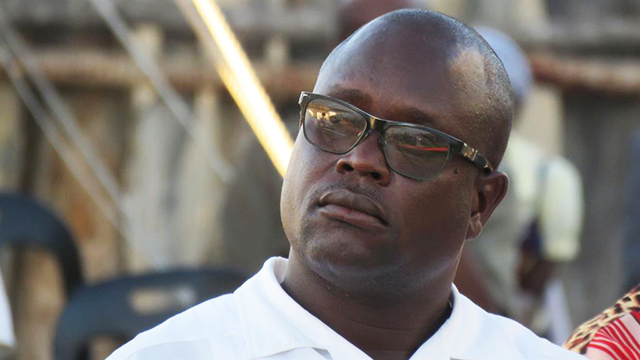A WINDHOEK High Court judge is expected to indicate today whether a case on the succession battle to the Ondonga throne can be heard as an urgent matter.
After hearing hours of oral arguments yesterday, acting judge Claudia Claasen said she would rule today whether the application before her qualified to be heard as an urgent matter or not.
Acting judge Claasen heard the arguments on an application that a pretender to the Ondonga throne, Oscar Sheehama, and a member of the Ondonga royal family, Konisa Eino Kalenga, filed at the Windhoek High Court last week in a bid to restrain another member of the royal family, Fillemon Shuumbwa Nangolo, from acting as the successor to the late King Immanuel Kauluma Elifas.
In an affidavit filed at the court, a senior traditional councillor of the Ondonga Traditional Authority, Sheetheni Kamanja, said the late king had named Nangolo as his successor in 2002, although some members of the royal family were rooting for Sheehama.
Nangolo was also gazetted as a traditional councillor and deputy king in 2014, Kamanja says.
Kamanja claimed that according to Sheehama and Kalenga, they have known since 2004 of his (Nangolo’s) nomination as the king’s successor – yet they took until last week to launch the court application that they now want to be heard urgently.
Elize Angula, the lawyer representing Nangolo and the Ondonga Traditional Authority, argued yesterday that the application was not urgent, as the applicants have had enough time to take legal steps since they first learnt that Nangolo had been named as the king’s successor.
She also argued that the application could have been launched in 2017 or 2018 already, especially when Nangolo was reaffirmed as traditional councillor and deputy king by the government through the Ministry of Urban and Rural Development in 2018.
Angula said Elifas named Nangolo as his successor in 2002 after consulting the royal family and senior traditional leaders.
She said it would harm the Ondonga Traditional Authority, the Aandonga people and the nation at large, and could lead to violence if the order were to be granted as asked for by Sheehama and Kalenga. “There will be harm, pain, loss and suffering,” she submitted.
Angula also argued that there was nothing urgent about the application that could not wait until the late king had been laid to rest tomorrow.
Advocate Dennis Khama, representing Sheehama and Kalenga, said the applicants were not preventing Nangolo from becoming king, but were against the manner in which he had been appointed as the king’s successor.
While making reference to the Constitution’s guarantee of the rights to a fair trial, the protection of culture, and on customary law, Khama argued that the process through which Nangolo was appointed was not lawful.
“It remains invalid in the eyes of the law, and my clients only want to stop an illegal process,” he said.
Stay informed with The Namibian – your source for credible journalism. Get in-depth reporting and opinions for
only N$85 a month. Invest in journalism, invest in democracy –
Subscribe Now!










